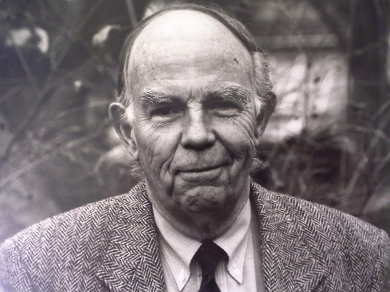
Anthropology students win Speckmann Prize for LGBTQ+ community care research
Speckmann Prize
Second-year Cultural Anthropology and Development Sociology students Sonja Weckroth, Leonardo Costa, and Ilse Zwart have been awarded the prestigious Speckmann Prize for their innovative Fieldwork NL project exploring care provision within LGBTQ+ communities in the Netherlands.
Investigating care in queer communities
The winning research team investigated how care is provided and experienced within localized LGBTQ+ communities across the Netherlands. The students explored various queer organizations and groups where they attended events ranging from support groups to parties and dinners. ‘In the beginning of our research, we still had a fairly uncertain understanding of the forms of care that could take place within these communties, and through our research we found multiple tensions in the care provision tactics. These findings led us to exploring efforts to construct and maintain ‘safe spaces’, with diversity within the community confusing how a ‘safe space’ should be defined and how they are managed.’

Challenging assumptions about community unity
The students chose this topic because they recognized the evolving nature of the term 'LGBTQ+', which encompasses people with vastly different identities and experiences. The team wanted to learn how these different people - who are all connected by shared experiences around gender and sexuality - think about care and community. Instead of assuming the LGBTQ+ community as homogenous, they were particularily interested in the dynamics emerging from the diversity within the community.
Navigating research challenges and gaining confidence by doing so
Doing fieldwork can be quite scary and out of your comfort zone at first. The group acknowledges that it felt awkward initiating conversations for their research purposes, while people where there to attend those events for fun – and not to be a research participant. Initially focusing on observation, the team gradually built trust and confidence, eventually achieving genuine participation in community events rather than remaining outside observers.
''It takes a lot to go up to people with confidence, start and hold a conversation, and ask for things that you want from them, when you have never even met these people before.''
The most important skill they learned during their fieldwork research was gaining confidence. ‘It takes a lot to go up to people with confidence, start and hold a conversation, and ask for things that you want from them, when you have never even met these people before. Fieldwork pushes you to do these things, because otherwise you can't get anywhere with the research.’
The fun in fieldwork
The students recall the more informal moments and interactions with participants as most fun. One of these casual conversations even led to a spontaneous trip to a game hall and getting pizza afterwards. ‘We also liked helping with volunteering. We would help hand out food and serve drinks. It was nice to get to help the organisations out through this and feel like we were part of them because of it.’
Importance of LGBTQ+ safe spaces in challenging political climate
The research highlights the vital importance of safe spaces where LGBTQ+ individuals can authentically express themselves, feel heard, and find understanding. The challenge, however, ‘remains for these localized commuties to cater to the needs of all their members – which due to their diversity may lead to contradicting forms of care’, the students emphasize. Despite these challenges, the communities explored in this Fieldwork NL project continuously seek improvement, recognizing their increased importance in today's challenging political climate.

Annually the Institute of Cultural Anthropology and Development Sociology awards the Speckmann prize for the best Fieldwork NL report from bachelor's students, as well as the most accomplished master’s thesis. This tradition started in 1993 and is named after Professor dr. J.D. Speckmann (1928-1997), who taught empirical sociology with a special focus on field research.
This year’s award-winning master’s thesis is by Elleke Scheur titled ‘Gendered Experiences and Homelessness Trajectories: An Anthropological Fieldwork Study in The Hague, The Netherlands'.
For more information about the Speckmann Prizes, see Prof.dr.J.D. Speckmann prize.
Fieldwork NL
In the second-year course Fieldwork NL, students have the opportunity to design and conduct a full-scale anthropological research project themselves. They choose their own topic and research location in the Netherlands, matching an overarching theme.
Under the guidance of a supervisor, they go through the entire research process: from writing a research proposal to three weeks of fieldwork, followed by data analysis and a research report. In the end, they present their findings during the Fieldwork NL conference.
